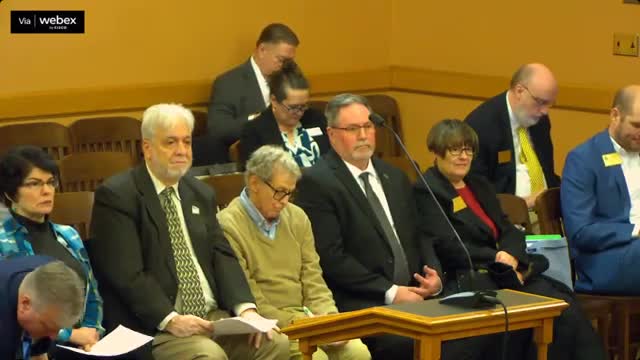Committee advances bill to pay certain claims against the state; substitute motion places SB125 on consent calendar
Get AI-powered insights, summaries, and transcripts
Subscribe
Summary
The committee received an overview of Senate Bill 125, which would authorize payment of five claims totaling $6,430 from existing state funds; members approved a substitute motion to pass the bill favorably and place it on the consent calendar by voice vote.
Senate Bill 125, a bill authorizing payment of certain claims against the state, was heard and advanced by the Kansas Senate Ways and Means Committee after a staff overview and committee discussion. Molly Pratt, a fiscal analyst with the Legislative Research Department, summarized the Joint Committee on Special Claims against the State’s interim work and the claims recommended for payment.
Pratt told the committee the joint committee reviewed 63 claims during the interim and recommended payment of five claims that would total $6,430 and be paid from existing state resources in fiscal year 2025. Four of the claims involved correctional facilities and were recommended for partial payments totaling $230.04; examples included partial awards where the committee found insufficient evidence of staff negligence but nonetheless recommended limited payments. The largest recommended payment, $6,200, was for a claim brought on behalf of an assisted‑living facility (Hillside Village) against KDADS and KDHE related to a delay in processing home‑and‑community‑based‑services eligibility; the joint committee recommended full payment of that claim.
Pratt noted the bill requires each claimant to sign a waiver releasing the state from further liability before payment and that the bill would take effect upon publication in the Kansas Register. Committee members had no proponents, opponents or neutral witnesses present at the hearing.
On committee action, Senator Fagg moved that the committee move Senate Bill 125 favorably; the motion was seconded by Senator Alley. Senator Peck offered a substitute motion to pass SB125 favorably and place it on the consent calendar; Senator Feige seconded the substitute motion. The substitute motion passed by voice vote; the chair recorded “Aye” and no opposition was stated. The committee moved SB125 favorably and placed the bill on the consent calendar for further floor action.
The bill’s fiscal effect, as presented by KLRD, directs payment from existing resources and does not increase total state expenditures beyond resources identified by staff. Committee members asked procedural questions about consent calendar placement, and staff explained that the bill’s details would be handled administratively after committee action.
The committee concluded its business after recording the favorable committee action on SB125.
